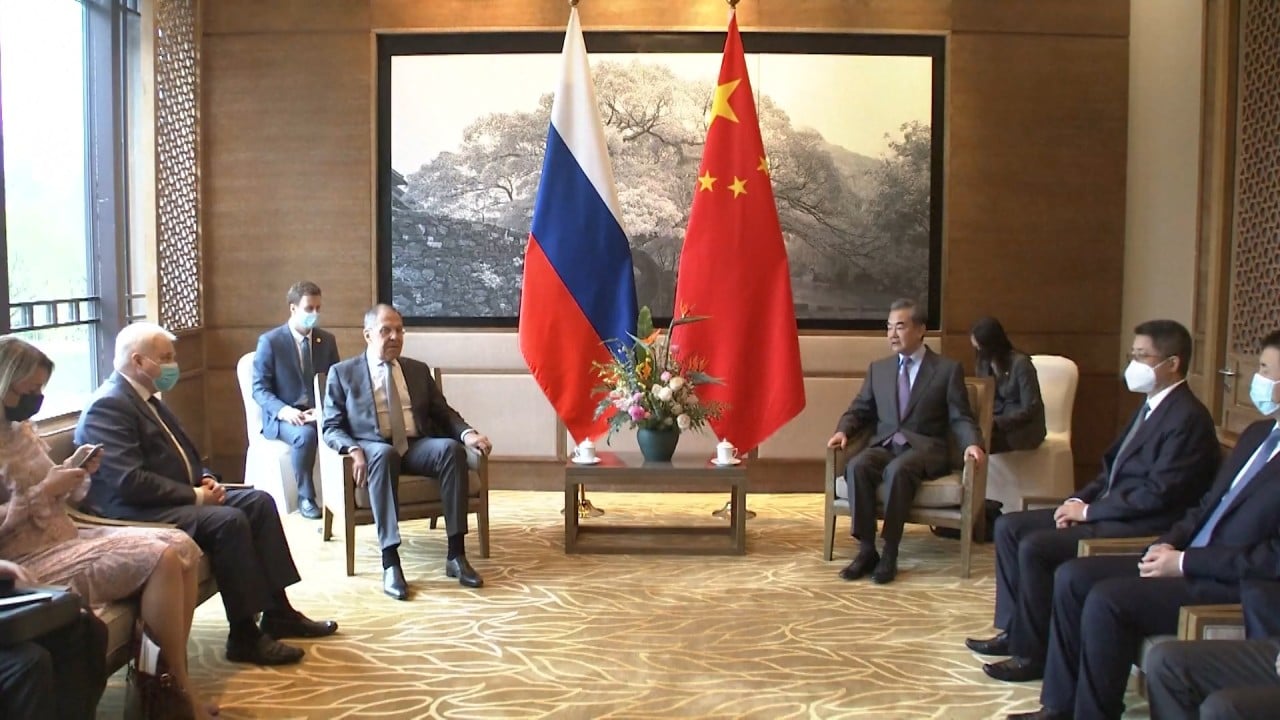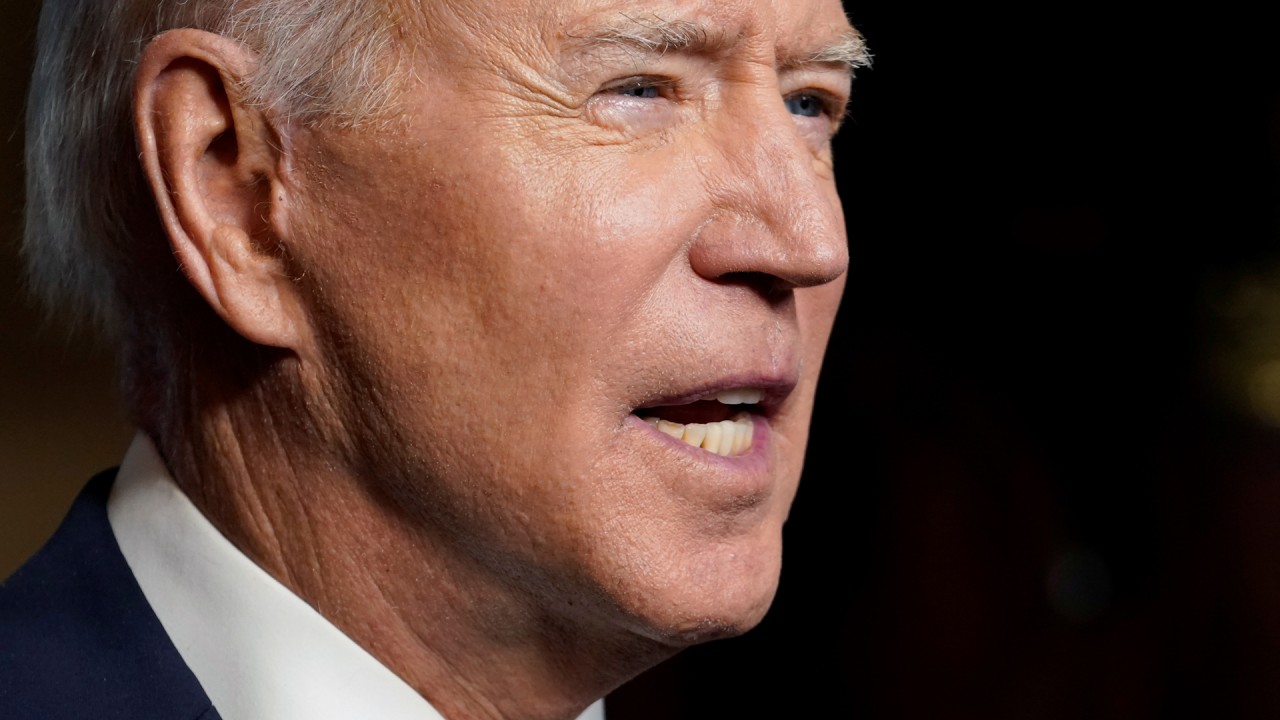
Beijing must prepare for a drastic reversal ahead of China’s rise and America’s fall
- Washington’s domestic agenda may be confused, but its new foreign policy consensus is extraordinarily coherent, comprehensive and bipartisan, and is intended to be a guide for a multi-generational struggle against its adversaries well into the rest of the 21st century
Someone once wrote, I don’t know who, that knowing only your own country means you don’t know any country at all. The same may be said about your own war or conflict zone.
Many Chinese are over-focusing on the political rhetoric and actions of Washington over the South China Sea. It is only one of three major theatres of political and possible military confrontations to contain and roll back America’s adversaries.
The other two theatres are eastern Europe and the Black Sea, against Russia, and the Persian Gulf and rest of the Middle East, against Iran. The Chinese need to appreciate what the fight in their own corner of the world means in the context of America’s attempt at restoring global hegemony.
China, Russia and Iran are all at the receiving end of the same overall strategic goal. They are being drawn closer together, not because they have much else in common other than a fearsome enemy.
But, given the global-economic importance of Asia, America’s anti-China strategies and tactics have to be much more subtle and multidimensional than its overtly militant approach in other parts of the world.
Under the illusionary and self-congratulatory narrative of the inexorable rise of China and the inevitable decline of the United States, many Chinese now think Washington’s “contain and roll back” strategy will prove to be futile and self-defeating, the last hurrah of a superpower that can’t accept its own fall from grace. That is not necessarily so.
A hegemon in decline may be even more dangerous than when the global order is stable. In the West, especially the United States, much has been written about the dangers posed by China’s rising global status and its threat to the international order.
That narrative is most famously encapsulated in Graham Allison’s 2017 Destined For War: Can America and China Escape Thucydides’s Trap?
Chinese need to think through the other end of that equation – that is, whether a hegemonic power struggling to retain its dominance will become even more violent, confrontational, ruthless and destructive. Powerful people and empires alike rarely leave the stage in good graces.
Many Chinese have talked themselves into believing the inevitable decline of the US. The evidence they point to is not wrong, especially about divisive domestic issues in America: racism and inequalities; the global financial crisis triggered by flawed economic policy, practice and ideology in the US; the failure in Iraq and Afghanistan; the explosion of the Covid-19 pandemic across the US under the incompetent and self-destructive presidency of Donald Trump.
All these and more, the Chinese like to point out, are serious self-inflicted wounds. But they are not necessarily fatal.
We are already seeing their recovery or the start of one. The upcoming unconditional withdrawal of US combat troops from Afghanistan may look like an embarrassing admission of defeat in America’s longest war.
But it’s also called cutting your losses and not continuing the so-called sunk cost fallacy, both being essential to survival after making a terrible investment; in this case, a geopolitical one for the Americans.
What some Chinese may be missing in their analyses is the re-emergence of a remarkably coherent and bipartisan consensus within the US ruling and military classes about the direction of US foreign policy; that is, on what must be done to maintain hegemony after the debacles in Iraq and Afghanistan, and the squandering of the peace dividend after the collapse of the Soviet Union and the end of the Cold War.
In other words, Washington’s domestic agenda may be confused, but its new foreign policy consensus is extraordinarily comprehensive and well-thought out, and is intended to be a guide for a multi-generational struggle.
It will not be a new cold war, but a remarkable renewal of purpose recalibrated to maintain global US hegemony for the rest of the 21st century.
Meanwhile, the problem with China today is that it is acting like a superpower and a quasi-hegemon when it still has a long way to go.
In doing so, it provides the perfect propaganda excuse to its Western adversaries to respond overwhelmingly without worrying about disproportionality, including possible future military responses.
It can’t throw its weight around without the commensurate ability, credibility and legitimacy to do so and not hit a brick wall, as it has done time and again, without apparent self-awareness of the need for course correction.
Nothing is preordained in history: neither China’s recent undeniable successes nor America’s egregious failures; neither the rise of one nor the decline of the other is inevitable.
Chinese need to reflect deeply and appreciate their own weaknesses and the enemy’s extraordinary strengths and ability to recover from catastrophes. Unlike Americans, we do not have the same luxury to make so many egregious mistakes and still recover.
Their assets – both tangible and intangible; in the military, technology, diplomacy, financial markets and soft power – run wide and deep. By contrast, we only have a very small margin of error.
Machiavelli once asked whether it was better for a leader to be feared or loved. He concluded it was best to be both, but being feared was always primary.
What he didn’t write, but it’s obvious, is that a leader who can’t inspire fear or love, ends up in the worst position: being treated with contempt.
One consequence of contempt is that you don’t get a second hearing; worse, you are condemned before the first hearing. In the court of public opinion, there is no such thing as “innocent until proven guilty”. Nowadays, China is always already guilty. Any accusation, true or not, however outlandish, will stick.
Beijing craves too much for respect. It wants to be feared and loved. It may end up achieving neither.



